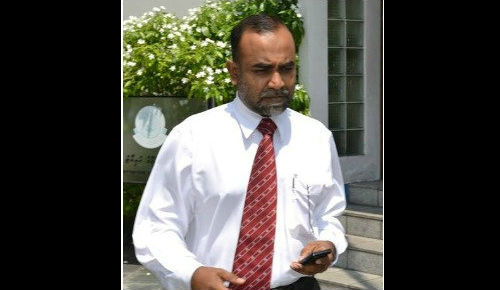Criminal court chief judge transferred to family court
The judicial watchdog has approved a proposal by the Supreme Court to transfer the chief judge of the criminal court to the family court effective February 21.

15 Feb 2016, 09:00
The judicial watchdog has approved a proposal by the Supreme Court to transfer the long-serving and controversial chief judge of the criminal court to the family court.
The Judicial Service Commission decided to transfer Judge Abdulla Mohamed during a meeting held at 11:00pm last night. The oversight body said in a statement that the judge will be transferred to the family court on February 21, but did not offer any reasons for the change.
The JSC is meanwhile investigating Family Court Chief Judge Hassan Saeed over alleged ethical misconduct.
The constitution entrusts the power and responsibility of appointing, promoting, transferring and taking disciplinary action against judges to the independent 10-member commission, but the Supreme Court last month enacted new regulations requiring its approval for the transfer of judges.
Become a member
Get full access to our archive and personalise your experience.
Already a member?
Discussion
No comments yet. Be the first to share your thoughts!
No comments yet. Be the first to join the conversation!
Join the Conversation
Sign in to share your thoughts under an alias and take part in the discussion. Independent journalism thrives on open, respectful debate — your voice matters.




